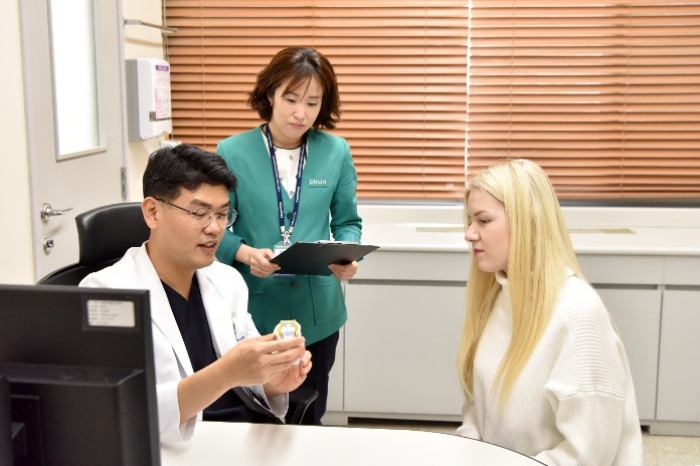
According to The Korea Economic Daily Global Edition,
South Korean government has set a goal to expand medical service exports by attracting 700,000 foreign patients and receiving 70 applications of overseas expansion by medical institutions within five years until 2027 and offering policy support to achieve this goal.
To improve the accessibility and convenience for foreign patients, the government plans to enhance immigration procedures for foreign patients, explore specialized medical and tourism services at the local government level, and target high-value patients. It also aims to improve the application process and provide support platforms tailored to different types of overseas expansion to invigorate the international expansion of medical institutions.
South Korean Finance Minister and Deputy Prime Minister Choo Kyung-ho presided on Monday a meeting of the Service Industry Development Task Force at the Seoul Government Complex and discussed the "Promotion Plan for Exporting Health and Medical Services" as the third agenda.
The number of foreign patients in the country reached a record high of 500,000 in 2019 but sharply declined in 2020 due to the COVID-19 outbreak. Since last year, the number has been recovering rapidly, reaching 24,800 patients, which is around 5% compared to 2019 (497,000).
However, there is still a need to improve the accessibility and convenience for foreign patients due to strict immigration procedures, the uneven distribution of services across regions and medical specialties, and low awareness among foreigners. Therefore, the government has set a goal to attract 700,000 foreign patients and receive 70 applications for overseas expansion by medical institutions by 2027.
As part of specific implementation measures, the government will focus on improving the immigration procedures for foreign patients. The number of designated excellent medical service providers licensed for attracting foreign patients will be increased from 27 to over 50, and incentives will be provided. Large hospitals with more than 300 beds can earn additional points if they apply for designation as excellent service providers for attracting patients with severe diseases.
The quota for foreign patient visas that can be simultaneously applied by non-designated hospitals will be adjusted from five to ten people. The range of caregivers and guardians will also be expanded in consideration of the urgency of the disease, and the obligation to submit financial status documents for companions will be exempted.
The government will also strengthen regional specialized projects that combine medical services with tourism and industrial infrastructure to allow foreign patients and their guardians to enjoy both medical services and tourism. The Ministry of Culture, Sports and Tourism will provide support for the construction of wellness and medical tourism complex clusters (worth 3 billion won or $2.3 million), and the Ministry of Health and Welfare will support the development of regional specialized promotion models (worth 1 billion won or $765,000).
Targeting high-value patients will also be strengthened. Customized models for VIP patients and long-term stay patients, which have significant ripple effects on related industries, will be further explored and promoted. In addition, tailored strategies for each country, considering the demand and supply based on major diseases and preferred medical fields in Korea, will be formulated, and cooperation in international patient transfer will be pursued.
The range of medical fields will also be diversified. In addition to the most popular fields such as plastic surgery and dermatology, strategies for severe and complicated diseases and the expansion of traditional Korean medicine will be established.
The Evaluation and Designation System for appointing medical institutions will be changed to the Evaluation and Certification System. As the process is simplified, the expansion of certified medical institutions will be expected. Incentives such as education and training for medical institutions will also be expanded to encourage participation.
Furthermore, to enhance the convenience of foreign patients, the training of caregivers for foreign patients and specialized medical interpreters will be expanded. Educational courses are being offered to multicultural families, retired nurses and nurse's aides, covering foreign languages, caregiving theory and practical training in patient hygiene, nutrition and safety management.
To increase global awareness of Korean medical services, K-culture such as K-pop and dramas will be actively utilized for online and offline promotion. Overseas embassies, the Korea Trade-Investment Promotion Agency, the Korean Culture and Information Service, Korean Cultural Centers, and cooperation projects between the health industry and government agencies will be established to activate collaboration between the public and private sectors.
Write to Kyung-Min Kang at kkm1026@hankyung.com
Yeonhee Kim edited this article.

Source: The Korea Economic Daily Global Edition (Jun 5, 2023)










